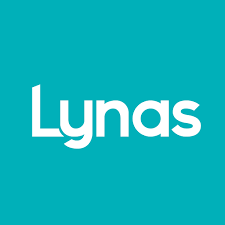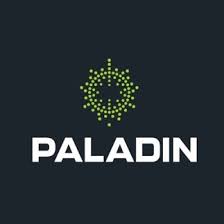
Reece Shares Find Footing at A$13 Slowing Downturn – Could Support Be Found?
Reece Ltd shares (ASX:REH) have endured a brutal stretch, with its share price down 41% since the start of this year. The shares carved out a fresh 52-week low of A$12.93 today, before staging a modest recovery to close at A$13.28, a 0.61% gain on the day. This question as to whether the A$13 level…

Paladin Energy Shares (ASX:PDN) Rally: Is a Bullish Pattern Emerging?
Shares of Paladin Energy (ASX: PDN), the uranium mining company, experienced a notable surge today, climbing 7.15% to close at A$7.64. This positive movement follows a volatile period for the stock, marked by both significant gains and recent pullbacks. The day’s gains offer a respite after difficult start to the month, with PDN down 11.65%…

Unico Silver Shares Hit New Heights on La Negra Drill Results
Unico Silver shares (ASX: USL) have been capturing headlines, with the price moving to new multi-year high, closing at A$0.425, a hold of the high coming after an impressive 28.8% increase to start the week. The surge, fueled by exceptionally promising drill results from the La Negra prospect within the Joaquin Project in Argentina, reflects…

South32 Shares (ASX:S32) Drop 5% – Mozal Impairment Fears Dominate The Day
South32 shares (ASX:S32) came under increasing scrutiny today as its price fell 5.14%, on an announcement regarding a potential impairment at its Mozal Aluminium smelter in Mozambique. This latest dip compounds existing anxieties, bringing the stock’s year-to-date decline to nearly 15% and raising questions about the company’s near-term outlook leading into financial results. The primary…

DroneShield Shares (DRO) Close At Record Highs on Expansion News
DroneShield shares (ASX:DRO) are the darling of the ASX today, soaring to an all-time high of $3.24 at the close, for an impressive 16.97% jump on the day. Whilst momentum has been strongly building in recent months, the catalyst for today’s surge is DroneShield’s announcement of a significant $13 million investment in a new 3,000sqm production…

Xero Share Price (XRO) Enters Correction Territory
Xero share price (ASX:XRO) has dropped 1.46% today, bringing XRO into correction territory. Closing at A$173.83, Xero’s stock is down more than 10.5% from its recent high in late June. A pullback after a bullish run can be healthy, yet questions need to be asked as to whether this is likely to be a short…

Lynas Rare Earths Shares (ASX:LYC) Make New High
Lynas Rare Earths shares (ASX:LYC) are once again at the forefront of Aussie markets, with its share price exhibiting renewed momentum. LYC trades at A$9.67, marking a 16.65% gain on the day, with a new high of A$9.96 hit early in the session. The resurgence of LYC shares is linked to the escalating global concerns…

Paladin Energy Shares (PDN) Drop As Uranium Rebound Stalls
Paladin Energy shares (ASX:PDN) have taken a significant hit, dropping 8.66% in today’s session to close at A$7.07. This sharp decline mirrors a broader sell-off across the uranium sector, with fellow Australian uranium miners Boss Energy (-7.58%) and Deep Yellow (-7.8%) also experiencing substantial losses. The question now is whether this represents a temporary dip…

Pilbara Minerals Shares (ASX:PLS) Rally Off Lows
Pilbara Minerals shares (ASX:PLS) have experienced a rollercoaster month of trading, marked by a net 13.48% gain in its share price, after an earlier decline. The recent rally off lows, now more than 40% offer a glimmer of hope to investors battered by the past year’s lithium price slump, and a stock that remains down…

Amplitude Energy Shares (AEL) Hit New High – Price Target Raised
Amplitude Energy Limited (ASX:AEL) is experiencing a surge in investor attention following a recent upgrade by Goldman Sachs from Neutral to Buy, accompanied by a price target of A$0.26. The Amplitude Energy share price closed out the day at A$0.23, bringing the gains since the start of the year to 15%. This came along with…




